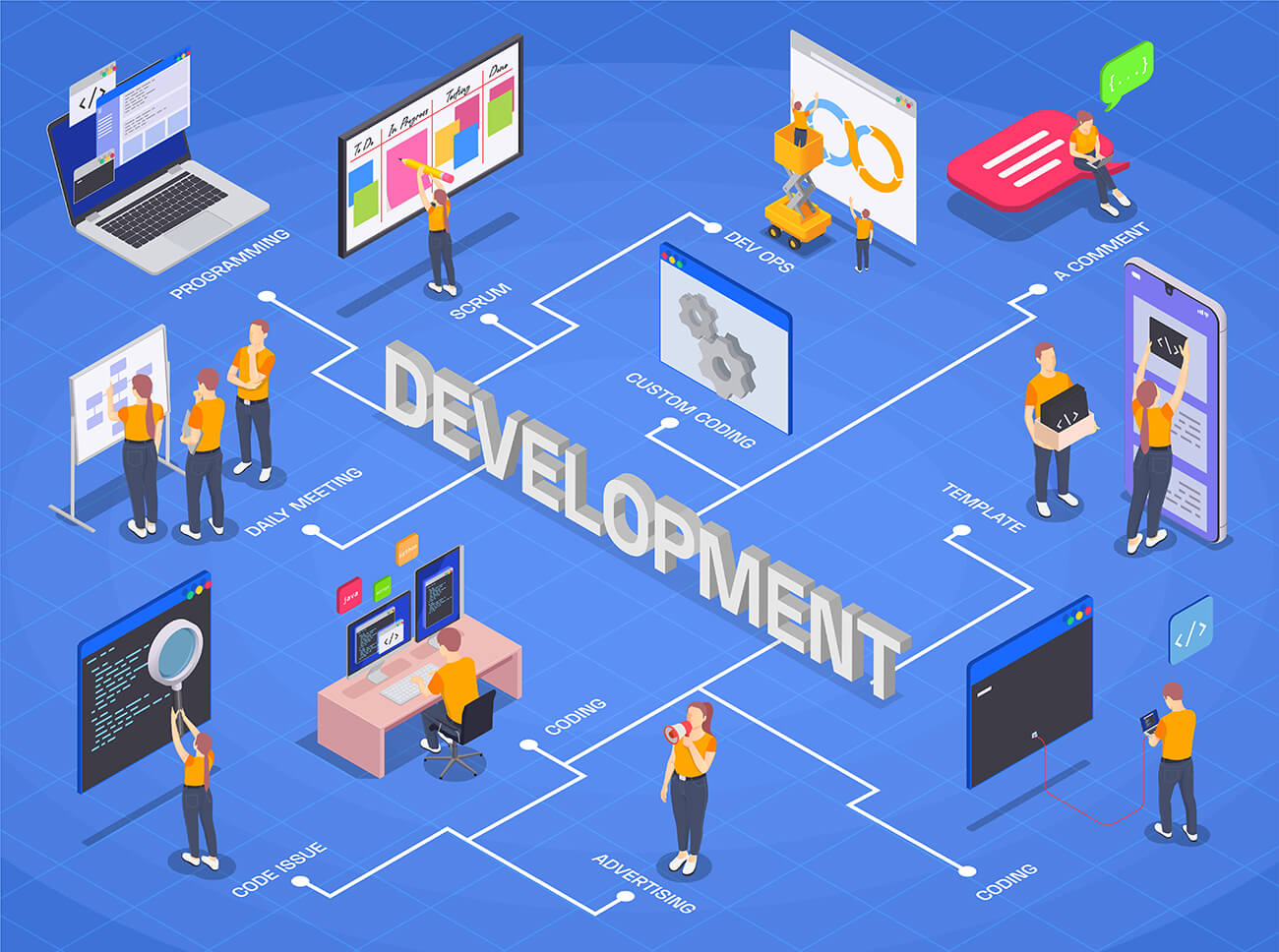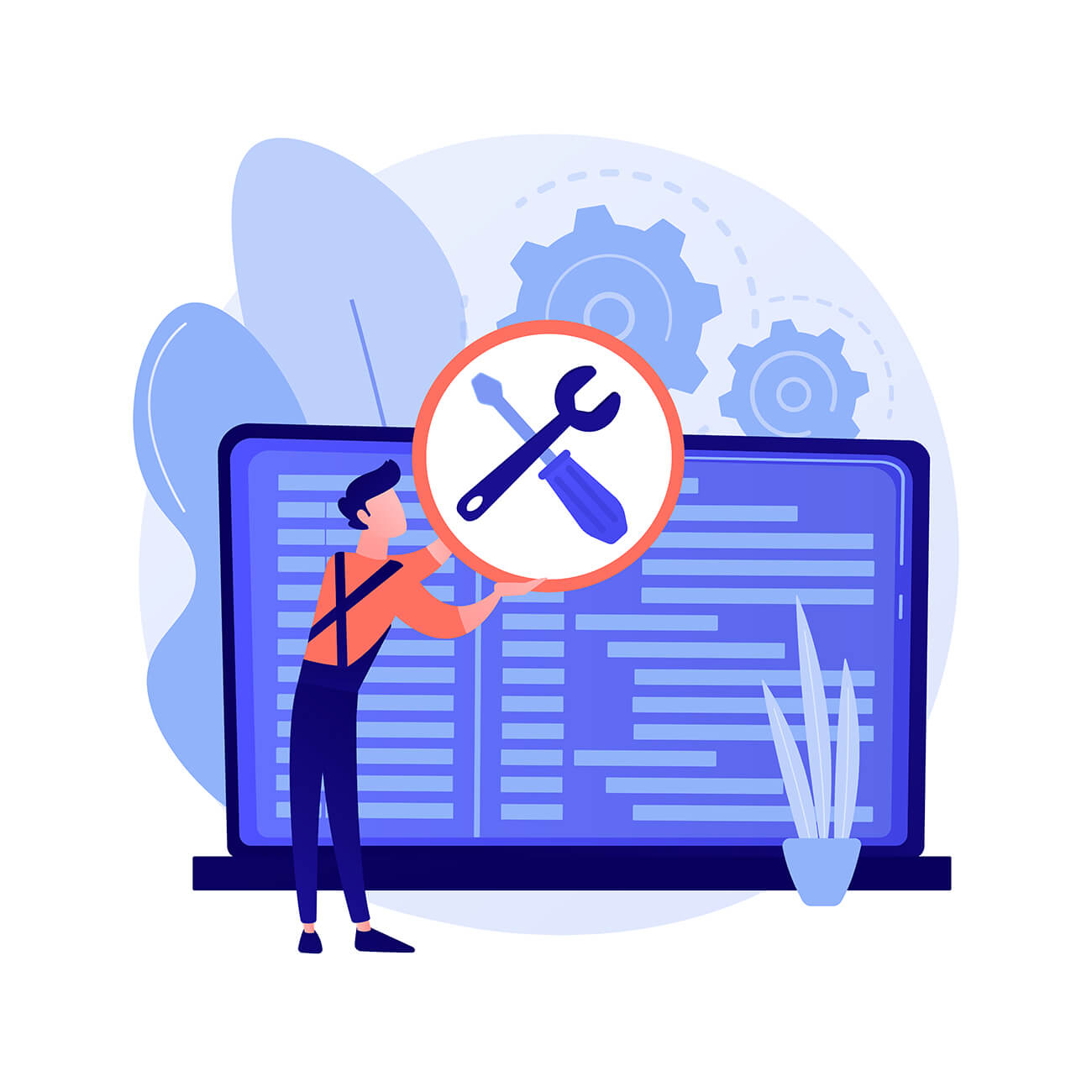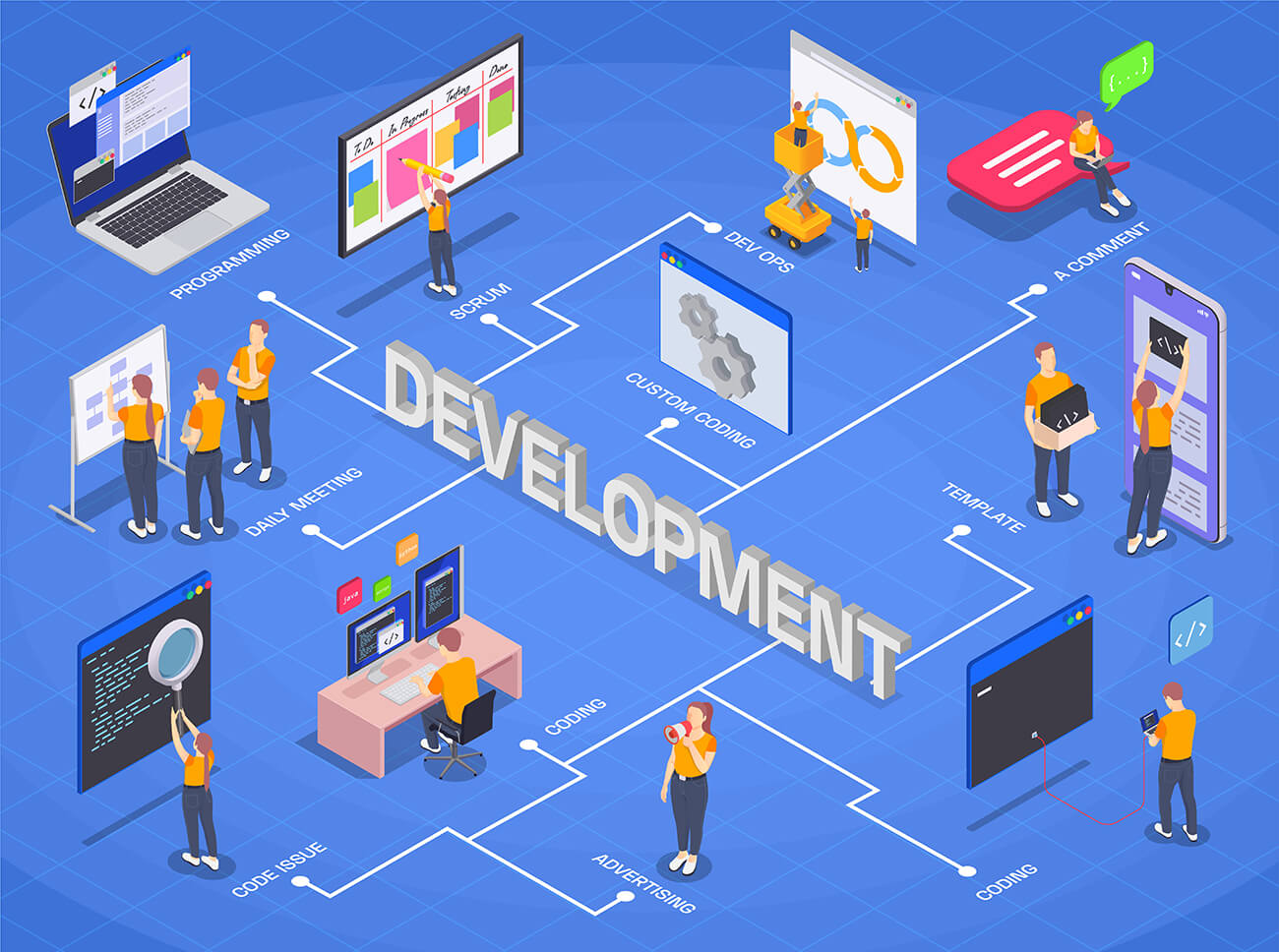If you’re a business owner looking to develop a new app, finding the right mobile app development partner is crucial. The right partner will not only bring technical expertise to the table, but also provide valuable guidance and support throughout the development process.
So how do you go about finding the right mobile app development partner for your business? Here are a few key things to consider:
Define your project requirements

Clearly outline the goals and objectives of your project, including the target audience, desired features, and timeline. Try to be as clear as possible with the requirement document, so that it will help the mobile app development team estimate the cost and timeline efficiently. You can also search project requirement document templates in google and make use of existing free templates to make your work easier.
Remember that the more clear you are with requirements, the project can be delivered sooner and on budget. If you are not aware of your own requirements, do not expect any development team to deliver on budget and timeline.
Research potential partners

When choosing a mobile app development partner, it’s important to consider their experience and track record, as well as the cost and timeline for the project. It’s also a good idea to ask for references and case studies to get a better understanding of their work and how they operate.
You should also consider the type of support and maintenance services that the partner offers, as well as their communication and collaboration processes. Working with a mobile app development partner who is transparent and responsive can make the development process smoother and more successful. It’s also a good idea to sign a clear and detailed contract outlining the scope of work, timelines, and payment terms to avoid any misunderstandings or disputes down the line.
Consider the development process

Choose a partner that aligns with your preferred development process, whether that’s agile, waterfall, or something else. This will give you an idea of how they approach and manage the development process.
If you are a startup then the lean approach is the best option for you coupled with the agile process. Your goal is to hit the market with a minimally viable product. Once you receive the feedback from your customers, you can plan on adding new features or reworking existing features based on the feedback.
Evaluate their technical capabilities

Make sure the firm you choose has the necessary technical expertise to develop the type of app you need.
You can look at the clients they have worked with and projects they have executed previously. Ask them for case studies that you can review and see if it aligns with your goals. If you are running on a tight budget, then consider hiring a smaller or newer company but research the team and their past experience in the industry to analyze if they are capable to deliver your project.
Look for a strong design team

A strong design team can help ensure that your app is visually appealing and easy to use.
It’s a good idea to review the design team’s portfolio and ask for references or case studies to get a sense of their skills and experience. It’s also a good idea to discuss your design goals and preferences with the team to ensure that they are able to meet your needs.
Consider the size of the firm

Consider whether a large or small firm is the best fit for your project. Larger firms may have more resources and experience, but smaller firms may be more agile and responsive.
Don’t go by the perception that the bigger the company is faster the projects get executed. As the team size grows there will be a lot of hierarchy for approvals. This will be a bottleneck and lead to delays. Smaller teams are free from such burdens.
Check out their portfolio

Review the firm’s portfolio to get a sense of their past work and the types of projects they have experience with.
When reviewing a portfolio, consider the following:
Variety of projects: Look for a vendor with experience in a range of projects, as this can demonstrate their versatility and adaptability.
Quality of work: Pay attention to the quality of the work in the portfolio. Is the software well-designed and functional? Does it meet the stated goals and requirements?
Relevance to your needs: Consider whether the vendor’s past work is relevant to your project and whether they have experience in the technologies and platforms you need.
Testimonials and case studies: Look for testimonials and case studies online that provide more detailed information about the vendor’s work and how they have delivered successful projects in the past.
Ask for references

Don’t be afraid to ask for references from past clients to get a sense of the firm’s reliability and quality of work.
Speak with references from a variety of industries and with different project sizes and complexity. This can give you a more well-rounded view of the vendor’s capabilities.
Ask the references about their experience working with the vendor and how they handle communication and collaboration.
Inquire about any issues or challenges that arose during the project and how the vendor handled them.
Ask the references about the final product and whether it met their expectations and goals.
Find out about the vendor’s post-launch support and maintenance services and whether the references were satisfied with them.
It’s a good idea to speak with several references to get a well-rounded view of the vendor’s work and how they operate. It’s also a good idea to follow up with the vendor about any specific questions or concerns that arise during the reference check.
Look for transparency

Choose a partner that is transparent about their processes, pricing, and communication.
A transparent vendor will be open and honest in their communication with you, keeping you informed about the progress of the project and any issues or challenges that arise.
They will set clear expectations for the project, including timelines, budgets, and deliverables.
They will be upfront about the cost of the project and any additional fees that may arise.
They will have clear processes in place for managing the project, including project management, communication, and collaboration.
It’s better to discuss transparency with the vendor during the proposal or bidding process to ensure that you are comfortable with their level of transparency. Clarify any questions or concerns you have about the vendor’s transparency before signing a contract.
Consider their location

While it’s possible to work with a mobile app development firm remotely, it may be beneficial to choose a firm that is located in the same time zone or at least has overlapping work hours.
If you plan to visit the vendor’s location for meetings or project reviews, you may incur additional travel costs.
It’s important to consider any legal or regulatory considerations that may impact the project, such as data protection laws or tax implications.
If there is a language barrier, it may be more difficult to effectively communicate with the vendor and understand their processes and deliverables.
Cultural differences can impact communication and collaboration, and it’s important to choose a vendor who is sensitive to these differences and can adapt to your needs and preferences.
Choose a vendor whose location is convenient and suitable for your needs and preferences. It’s also a good idea to clarify any questions or concerns you have about the vendor’s location before signing a contract.
Discuss their project management approach

Make sure the firm has a clear project management approach and can provide regular updates on the project’s progress.
There are many software programs available that can help project managers track and update the status of their projects, including tools like Asana, Trello, and JIRA. These tools often include features like task tracking, project calendars, and real-time updates, which can make it easier to keep clients informed about the status of the project.
Regular meetings with the client can be a good way to update them on the status of the project, as well as address any concerns or questions they may have. Meetings can be held in person, over the phone, or via video conferencing.
Regular updates to provide information on the progress of a project, including completed tasks, upcoming milestones, and any issues or challenges that have arisen. Status reports can be delivered via email, in person, or through a collaboration platform like Slack or Microsoft Teams.
Consider their pricing

When searching for a company to work with, it is important to consider the pricing options available and choose a competitive option. However, it is also important to keep in mind that the lowest price may not always equate to the best value or quality of service. It may be worth paying a bit more for a company that has a strong reputation and track record of delivering high-quality work.
Fixed-price: In this model, the project manager provides a fixed price for the entire project, based on an agreed-upon scope of work. This model is suitable for projects with well-defined requirements and a clear scope.
Time and materials: In this model, the project manager charges an hourly rate for the time spent on the project, as well as any materials or other expenses incurred. This model is suitable for projects with a flexible scope or rapidly changing requirements.
Value-based: In this model, the project manager charges a fee based on the value that the project delivers to the client. This model is often used for strategic projects that are expected to generate a significant return on investment for the client.
Ultimately, the best pricing model for a particular project will depend on the specific needs and goals of the project, as well as the resources and constraints of the client. It’s important to choose a pricing model that is fair and reasonable, and that reflects the value that the project will deliver.
Review their contract

- Scope of work: Make sure that the scope of work is clearly defined and that it aligns with the project’s goals and objectives. Be sure to review any exclusions or limitations, as well.
- Timing: Review the timeline for the project, including any milestones or deadlines, and make sure that they are realistic and achievable.
- Budget: Review the budget for the project, including any cost estimates or fees, and make sure that they are reasonable and in line with the project’s scope and timeline.
- Payment terms: Review the payment terms, including any invoicing or payment schedules, and make sure that they are clear and fair.
- Termination: Review the terms for termination of the contract, including any circumstances under which the contract may be terminated and any associated fees or penalties.
- Dispute resolution: Review the process for resolving disputes that may arise during the course of the project, and make sure that it is fair and reasonable.
It’s important to thoroughly review and understand the terms of a contract before signing it, to ensure that the project is set up for success and to avoid any misunderstandings or disputes later on. If there are any terms that are unclear or that you disagree with, it’s important to discuss them with the other party and try to reach a mutually acceptable resolution.
Look for a long-term relationship

While it’s important to find a partner that can deliver on your current project, consider whether the firm is a good fit for any future projects as well.
Find a team who is a good fit for your organization and its culture. Look for someone who shares your values and has a similar approach to project management.
Find a team who is adaptable and able to adjust to changing circumstances or priorities
Ultimately, the best way to find a long-term relationship with a vendor is to take the time to do your due diligence and carefully assess potential vendors. Look for someone who is a good fit for your organization and your projects, and who has the skills and experience needed to be successful.
Think about post-launch support

Choose a firm that offers ongoing support and maintenance for your app after it’s launched.
- Maintenance: It’s important to have a plan in place for maintaining the project after it has been launched, including addressing any bugs or issues that may arise. This may involve regular updates or patches, as well as ongoing support and troubleshooting.
- Training: Providing training to users of the project can help ensure that they are able to effectively use and benefit from the project. This may involve in-person training, online resources, or a combination of both.
- User support: Having a system in place for providing support to users can help ensure that they are able to get the assistance they need when they need it. This may involve a help desk or support hotline, as well as online resources or documentation.
- Ongoing development: It’s important to have a plan in place for ongoing development and improvement of the project, to ensure that it continues to meet the needs of users and stakeholders. This may involve adding new features or capabilities or making updates or enhancements to existing ones.
The post-launch support needs of a project will depend on the specific goals and requirements of the project, as well as the resources and constraints available. It’s important to carefully consider these needs and to have a plan in place for providing ongoing support and development to ensure the success and sustainability of the project.
Consider their culture

It’s important to work with a firm whose values and culture align with your own.
Look for a vendor who shares your values and has a similar approach to work. This can help ensure that there is alignment between your organization and the vendor which can be crucial for the success of the project.
Things often don’t go according to plan in the world of project management, so it’s important to find a mobile app development partner who is adaptable and able to pivot when necessary. Look for someone who is able to stay calm under pressure and is able to think on their feet.
Look for a flexible approach

Choose a firm that is willing to be flexible and adapt to changing needs and priorities.
- Requirements or goals are subject to change: In many projects, requirements or goals may change as the project progresses. A flexible team will be able to adapt to these changes and pivot as needed to ensure that the project stays on track.
- Resources or constraints are uncertain: In some cases, the resources or constraints available for a project may be uncertain or subject to change. A flexible team will be able to work with these constraints and find creative solutions to ensure that the project stays on track.
- The project is complex or high-stakes: Complex or high-stakes projects may require a flexible approach in order to navigate unexpected challenges or setbacks. A flexible team will be able to adapt to these challenges and find ways to keep the project moving forward.
Overall, a flexible approach to project management can be an important asset in a variety of situations, as it can help ensure the success of the project and the satisfaction of stakeholders. It’s important to look for a mobile app development partner who is able to adapt to changing circumstances and who is able to find creative solutions to problems that may arise.
Trust your gut
While it’s important to carefully consider all of the factors that go into choosing a mobile app development partner, it’s also important to trust your gut and rely on your instincts. If you have a strong feeling that a vendor is the right fit for your organization, it may be worth following up on that feeling and exploring the opportunity further.
That being said, it’s also important to be mindful of any potential biases or assumptions that may be influencing your decision, and to be open to considering all of the relevant factors. It can be helpful to have a clear set of criteria in mind when evaluating potential mobile app development partners, and to use this as a guide to help make a more objective decision.
Ultimately, the best mobile app development partner for your organization will be someone who is a good fit in terms of skills, experience, and culture, and who is able to effectively meet the needs and goals of the project. Trusting your gut can be an important part of this decision-making process, but it’s important to be mindful of any potential biases or assumptions that may be influencing your judgment.
Choosing the right app development partner is an important decision that will have a significant impact on the success of your app. Take the time to do your research and make an informed decision to ensure that you end up with a partner that meets your needs and helps you achieve your goals.